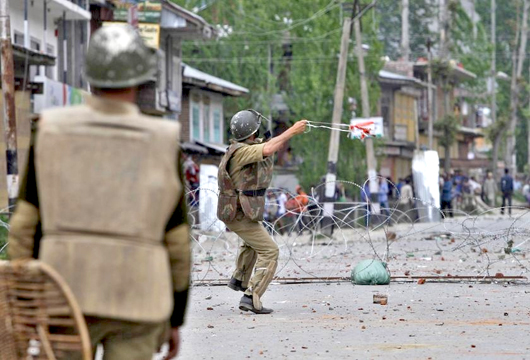
Srinagar, Jan 1: Indian border forces killed four Pakistani interior-ministry troops on New Year's Eve, ending a year in which clashes between the nuclear-armed neighbours have escalated and hopes for reconciliation faded.
Wednesday's incident, on the international border in Jammu and Kashmir, followed the killing earlier in the day of an Indian border guard, a senior officer from India's Border Security Force said.
"We have retaliated effectively ... four Pakistani rangers have been killed along the International Border in Samba sector this evening, said Rakesh Sharma, BSF inspector general for the Jammu Frontier.
"As Pakistani rangers suffered casualties, they waved white flags, asking BSF to stop the firing so that they can lift the bodies of the dead men. We stopped the firing after their request," Sharma said.
Frontier clashes have intensified in recent months, dashing hopes that a brief thaw in relations after Indian Prime Minister Narendra Modi was elected in May would lead to a calming of the situation.
The worst violence has been further north in the mainly Muslim Kashmir Valley, where separatist militants killed 11 Indian soldiers and police in early December, the worst losses in six years.
Jammu and Kashmir held state elections in December in which Modi's Bharatiya Janata Party made gains. While leaving the party short of a majority, the result could open the way for it to form a ruling coalition with a regional party.







Comments
Add new comment